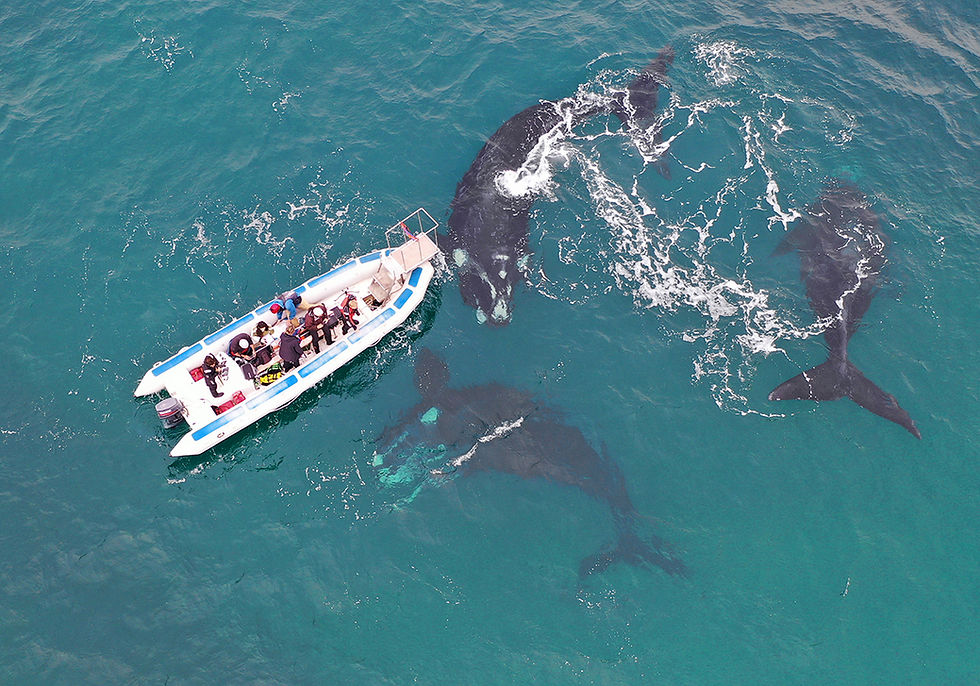Youth, innovation, and ocean literacy as the foundation of a regenerative blue economy
- Gabriela Casuso

- Oct 28, 2025
- 2 min read

By Gabriela Casuso, marine educator and founder of Proyecto Acuática
After seven years leading Proyecto Acuática, I’ve realized that the ocean’s greatest challenge is not only environmental, it’s human. We are living through what I call the triple crisis of awareness, made up of three silent forces that shape our daily decisions: misinformation, lack of interest, and ignorance.
These invisible waves determine whether a community protects its reef or turns it into a dumping ground; whether a young person chooses to protect marine ecosystems, or never discovers that the ocean produces more than 50% of the oxygen we breathe.
Proyecto Acuática was born to reduce that triple crisis, using marine education as a bridge between science and everyday life. What began as my “personal ocean classroom” when I was ten years old has now become a driving force for ocean literacy across the Caribbean and Latin America.
Ocean literacy, a concept promoted by UNESCO and the Intergovernmental Oceanographic Commission (IOC), seeks to help everyone understand how the ocean influences us and how our actions transform it.
In recent years, we have witnessed a deep shift: ocean solutions are no longer born only in laboratories, but also in classrooms, workshops, and youth-led ideas. Through Proyecto Acuática’s alliance with the Brilliant Blue Challenge, I now mentor young innovators from different countries who are developing technologies and projects to protect marine ecosystems. Some design low-cost sensors to measure water quality; others create digital campaigns to reduce plastic or restore coral reefs.
This kind of early innovation proves that education itself is a form of regeneration. According to the High Level Panel for a Sustainable Ocean Economy (2023), investing in ocean education and youth participation can generate direct impacts on marine productivity and coastal resilience, the two pillars of what is known as a regenerative blue economy.
In that vision, youth are not spectators but protagonists. Their scientific, ethical, and creative formation can make the difference between an extractive economy and one that gives back more than it takes.
Today, as I prepare to represent this vision at the Blue Skills Conference 2025 in Santa Marta, I reflect on what “regeneration” truly means. It is not only about restoring ecosystems, but also about repairing our relationship with the ocean, and that begins with education, empathy, and action.
Ocean literacy is not an academic luxury; it is a civilizational necessity. When a young person understands that the ocean lives in their breath, in their food, and in their climate, everything changes: how they consume, think, innovate, and lead.
That consciousness is the true renewable resource of the future."



